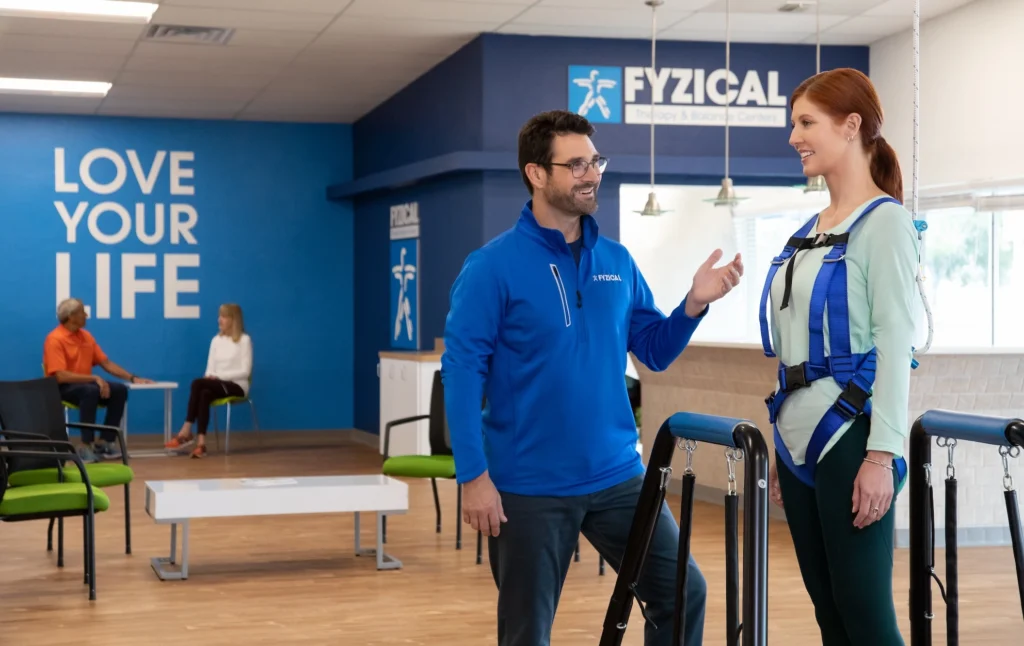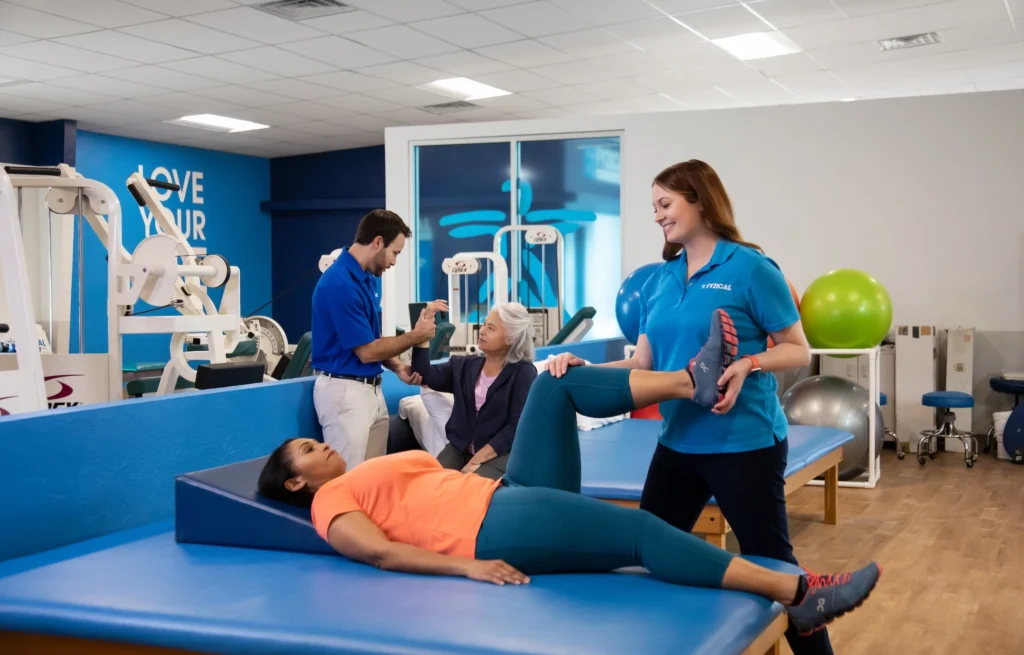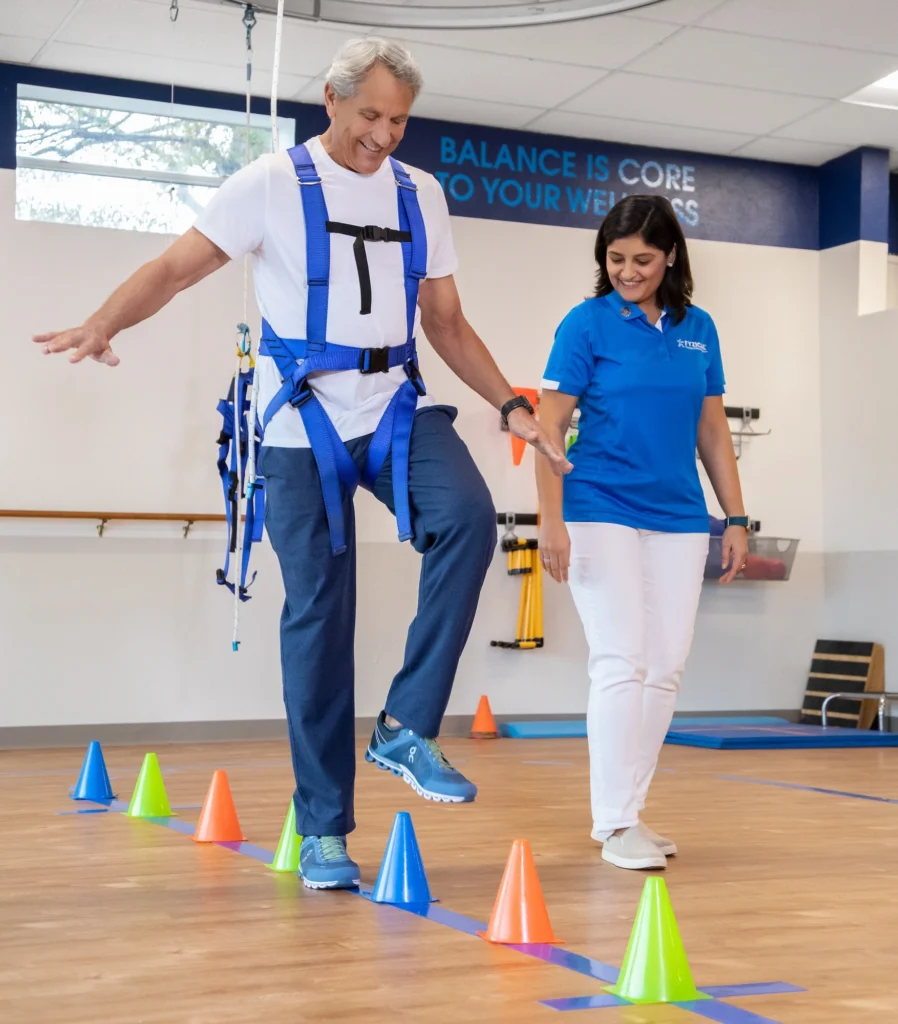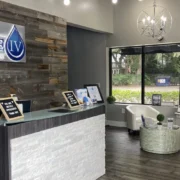Fyzical Therapy & Balance Centers has emerged as one of the fastest-growing franchise brands across health, wellness and fitness, recently hitting 620 locations and earning a spot on Entrepreneur’s coveted “Franchise 500” list.
Brian Belmont is responsible for much of that growth. Since joining Fyzical as its CEO in 2018, Belmont has helped the physical therapy franchise expand from around 170 locations to over 600 by prioritizing sound franchise economics and responsible yet aggressive growth.
A former executive vice president at Quiznos and part of the C-suite leadership team that took Planet Fitness public in 2015, Belmont has taken his franchise learnings to Fyzical, which focuses on fall prevention and vestibular balance in addition to offering a full suite of traditional physical therapy and holistic wellness services.
Belmont sat down with Athletech News to discuss what separates Fyzical from other physical therapy clinics across the United States, share his keys to franchising success and outline Fyzical’s plans for continued expansion.
The following conversation has been lightly edited for clarity and length.
Athletech News: Can you tell us about your background and why you decided to join Fyzical in 2018?
Brian Belmont: I started my career in the Marine Corps for 10 years. In my early 30s, I joined Quiznos, which at that time was one of the fastest-growing franchise concepts in the U.S. We grew Quiznos to over 5,000 stores, and I went from national director to executive vice president of development and operations. From there, I went to Camp Bow Wow as chief operating officer. After that, I moved to Planet Fitness as chief operating officer, helping the company go public in 2015.
So I’ve been lucky to have been with growth brands. When it comes to franchising, I look to see whether there’s a niche – a place in the market that no one else is addressing. For Fyzical, that’s balance and vestibular wellness. On top of that, our founder (Jim Abrams) is an iconic figure in franchising. All of that attracted me to Fyzical. When I got here, we were at about 170 stores. We’re at 620 today, so it’s been a pretty rewarding process.
ATN: What separates Fyzical from a typical physical therapy clinic?
BB: Our founder realized that no one in academia – or in the market at all – was addressing falls and fall prevention. So he brought on Brian Werner (currently Fyzical’s national director of balance center development, education and training). We adopted his diagnostics as well as his clinical protocol and pushed that throughout our whole system. The reason we’re able to open a clinic in a market that has many, many PTs already is because no one (else) is addressing vestibular imbalance. There’s a huge demand in the market, and all we have to do is capture it. That’s number one.
Number two is that we have great physical therapists. There’s something I call the “puppy mill” of physical therapy – treating a bunch of people at the same time. We don’t do that. We do individual, episodic, one-on-one care. Over time that creates a lifetime partner. You might have busted your shoulder, but sooner or later, you’re going to have something else that happens to you. You’re going to think of Fyzical because you had such a good experience when you were there.

ATN: What’s the age range of a typical Fyzical client?
BB: We definitely skew older because of the fall prevention. But it varies by state. I’ve got a 24-year-old daughter who was a dancer, so she’s had a lot of hip and back issues. She became a Fyzical client because she needed that care. If you come to Southwest Florida, however, where demographics skew much older, our average age is probably 58 to 60. So it’s across the board.
ATN: Fyzical has more than tripled in size since you took over in 2018. What’s been the key to scaling the brand?
BB: At the forefront of everything in franchising is whether a franchisee can make money. At the end of the day, it’s the economic model that solves it all. We provide the systems that help us grow, like business intelligence data, which allows franchisees to know whether they’re making money that day, and track their visits and referrals. Your operating systems need to be adapted system-wide and they need to be uniform within a franchise system.

ATN: As Fyzical continues to grow, what types of franchise owners are you targeting?
BB: The best way to build wealth and create a strong brand in a franchise system is through multi-unit ownership, so over the last four or five years, we’ve come to prefer multi-unit operators. You get to a point with franchising where you have the luxury to super select.
We focus on folks who have either already been successful in a career as an executive or who’ve grown a couple of other brands and want another growth brand. We’ve got over 60 area reps who’ve bought anywhere from five to 10 units to grow over five to seven years. Most of our multi-unit owners partner with a physical therapist as a clinical lead.
ATN: What’s your pitch to franchisees about why they should choose Fyzical over other health, wellness and fitness concepts?
BB: Because no one else is doing what we do; there’s no one else in the market that can provide what we do for our patients. And If you want a growth brand, this is easily a brand that can reach a couple of thousand stores. We’re still under-penetrated: for instance, we have almost 80 stores in Florida, which has one of the lowest reimbursement rates in the U.S., and we’re successful there. There are markets like Seattle where we have just a handful of stores. So it’s pretty attractive.

ATN: What are your long-term expansion goals for Fyzical? Could international expansion ever be in the cards?
BB: Based on regression studies, we can get to at least 3,000 over time, so we’re very confident. But it’ll be thoughtful growth. You can’t just grow for the sake of growth, you need to consider, “What’s the impact on an existing clinic? What’s the right market penetration?” However, we do want to continue gaining market share because that’s what keeps everyone behind us, not ahead of us.
Internationally, there’s a great opportunity to go to Canada. It’s a completely different medical system – they call it physiotherapy – but it’s almost 50% cash-based. We’re exploring that right now. I also believe England or Australia could be good markets because their healthcare systems are similar (to Canada).



